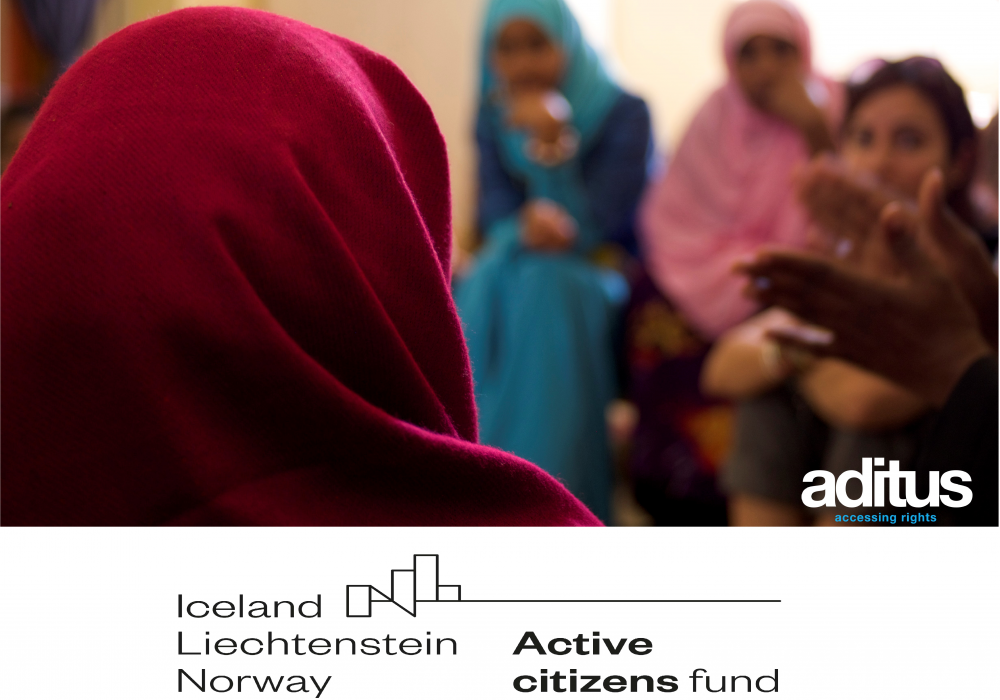The Strengthening Access to Justice for Improved Human Rights Protection project aims to improve access to Justice where fundamental human rights issues arise, with a particular emphasis on vulnerable or marginalised groups. However how does one turn seemingly intangible aims into practical goals that can be achieved? What is it really that we want to achieve? How is the rule of law linked to the enjoyment of rights for individuals?
Continue ReadingTag: access to justice
Survey: Access to Justice for Marginalised Groups

Help us identify, prioritise and tackle institutional obstacles that stand between individuals and their enjoyment of fundamental rights within the local justice system by filling out this short survey. We wish to collect data to access to justice for marginalised and vulnerable, including migrants, victims of crime, disabled and LGBTIQ individuals groups in Malta.
ReadMoreTwo Steps foward, One Step Back
The European Commission 2021 Rule of Law Report Country Chapter on the Rule of Law Situation in Malta
According to the 2021 Rule of Law Report Country Chapter on the Rule of Law Situation in Malta, Malta has made significant progress within the domestic justice system particularly with regard to the reform of judicial appointments and judicial discipline, and also the appointment of the Chief Justice, in fact the level or perceived independence has increased and this in view of enhancing judicial independence and subsequently facilitating access to justice. The main legislative changes that addressed these issues were highlighted in another post Venice Commission: regrets that 6 Bills adopted before opinion could be finalised, before it could engage with the national stakeholders.
carlacamilleriRule of Law: Justice
Strengthening Access to Justice for Human Rights Protection
In January 2021 aditus began working on the project Strengthening Access to Justice for Improved Human Rights Protection which has as its objective improving access to justice for individuals wishing to strengthen their human rights protection in those instances when they feel that they have been violated. This project is supported by the Active Citizens Fund (ACF) in Malta established under the specific Programme Area for Civil Society part of the EEA Financial Mechanism 2014-2021.
In several of our earlier projects, alone and also with several other NGO colleagues, we identified institutional obstacles to effective to justice for human rights protection. These obstacles have also been identified by several esteemed reports and research, including by the Venice Commission, the European Parliament, the European Commission and in the Vanni Bonello report on Malta’s justice system.
Continue ReadingVenice Commission: lack of public consultation akin to denying citizens their democratic entitlement.
Reform Process
Throughout this year we will be looking at Venice Commission Opinion CDL-AD(2020)019 adopted in October 2020 on the acts and bills that sought to implement the proposals for legislative changes which were the subject of Opinion CDL-AD(2020)006 adopted in June 2020. In this post we examine the Venice Commission’s reaction to the procedure used by the Government in adopting the first 6 Acts which are subject of the Opinion.
.wp-block-kadence-advancedheading.kt-adv-heading_5852c4-ea, .wp-block-kadence-advancedheading.kt-adv-heading_5852c4-ea[data-kb-block="kb-adv-heading_5852c4-ea"]{font-weight:400;font-style:normal;font-family:Arial, Helvetica, sans-serif;}.wp-block-kadence-advancedheading.kt-adv-heading_5852c4-ea mark, .wp-block-kadence-advancedheading.kt-adv-heading_5852c4-ea[data-kb-block="kb-adv-heading_5852c4-ea"] mark{font-style:normal;color:#f76a0c;padding-top:0px;padding-right:0px;padding-bottom:0px;padding-left:0px;}Backdrop: Daphne Caruana Galizia’s assassination
On the 8th October 2020 the Venice Commission adopted an Opinion on the ten acts and bills implementing the legislative proposals put forward by the Maltese government. This is the 4th Opinion adopted by the Commission on Malta since 2018. The process relating to the Malta’s constitutional amendments, separation of powers and independence of the judiciary kicked off in October 2018 by a request of the Committee on Legal Affairs and Human Rights of the Parliamentary Assembly of the Council of Europe (PACE) to the Venice Commission.
Continue Reading



